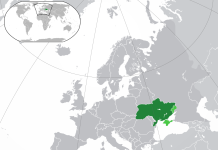VIDYASUNDAR-ER GAAN
VIDYASUNDAR-ER GAAN was an ICCR presentation and the creation of Devajit Bandyopadhyay was performed by Bandyopadhyay-duo Riddhi and Devajit at Abanindranath Tagore Gallery, ICCR, 9A, Ho Chi Minh Sarani on the Saturday 17 March 2018 at 6.30 pm sharp. The presentation was a repertoire of music, specifically songs of the three centuries echoing compositions from the eighteenth century’s Bharat Chandra to Pranab Roy of twentieth encompassing Gopal Urey, Michael Madhusudhan Dutt, Dinabandhu Mitra, Bankimchandra Chattopadhyay, Kaliprasanna Singha, Dwijendralal Roy and even of the Tagores, Jyotirindranath as well as Rabindranath along with Hemendra Kumar Roy and Kazi Nazrul Islam.
VIDYASUNDAR-ER GAAN portrayed how the saga of Vidya and Sundar played a vital role of entertainment — a ritual, a social celebration, a cultural exercise and finally, a form that had met the never-dying urge to witness the sociological perspectives adapted from the mythological and the religious aura since the eighteenth century. Vidyasundar authored by the Bengali poet Bharatchandra Roy (1712-1760), the poet-laureate in the court of Raja Krishnachandra Roy of Nadia, in his text Annada Mangala Kavya in the year 1752, reflected the social changes in the history of the eighteenth century Bengal and remained as the important historical documents for the researchers even today delving in the past. The various luminaries who illumined the Bengali literature, jatra, theatre and even film, with the songs of Vidyasundar, in different versions, through their histrionic experimentations are remembered for their immortal landmarks in the tradition of Bengali, rather, Indian culture and society.
Bharatchandra’s narrative dealt with the story where Man seeks Vidya (knowledge) and Woman — Sundar (beauty). This complementarity is expressed in the names of the two protagonists Vidya and Sundar. With the concept the music, specifically gaan or song had followed the root and ruled the roost. With the passage of time the saga of Vidyasundar continued to exercise a profound influence on the Bengali psyche. On 27 November 1795, in Calcutta, Gerasim Stepanovitch Lebedeff (1749 – 1817) staged the first ever play in Bengali Kalpanik Sangbadal — adapted from Jodrell’s The Disguise — where he used the popular songs of the poet Bharatchandra’s Vidyasundar.
At the cross-road of the bi-centenary of the last breath of Lebedeff (d. 1817) and Bengal’s maiden publication in print of Vidyasundar (p. 1817) the presentation projects the nationwide exposure of the socio-cultural dynamism through the creative horizon of music for the by-gone centuries. Nabinchandra Bose (1809 – 1876), a Calcutta based Bengali babu, aristocrat, returned to Lebedeff’s original inspiration, Bharatchandra’s ever popular Vidyasundar, in order to experiment with the theatre in 1835. With the endeavours of Lebedeff and Nabinchandra, two disparate factors — the Occidental and the Oriental, the foreign stage and the native music — from 1840 onwards, lilting tunes by Gopal Das (1819 – 1859), popularly known as Gopal Urey, since he came from Orissa, created a stir in innovative jatra version of Vidyasundar. Since then, Gopal’s Vidyasundar inspired the stage productions of Michael Madhusudhan Dutt (1824–1873), Dinabandhu Mitra (1830–1873), Bankimchandra Chattopadhyay (1838–1894), Kaliprasanna Singha (1840–1870), Dwijendralal Roy (1863–1913) and even of the Tagores, Jyotirindranath (1849-1925) and Rabindranath (1861–1941).
With the new currents of the twentieth century, the composers like Hemendra Kumar Roy (1888-1963), Kazi Nazrul Islam (1899-1976) and Pranab Roy (1911-1975), keeping pace with the jatra and theatres of the past, paved the new path even towards the movies on Vidyasundar of the present.
Songs like Gunsagar Nagar Ray ( Devajit ), Ki Bolili Manini ( Riddhi ) by Bharatchandra, Malini Tor Rongo Dekhe ( Devajit ), Suchikon Chikon Mala ( Riddhi ), Amar Goti Ki Hobe Bolo ( Devajit ) Oi Dekha Jay Bari Amar ( Riddhi ) by Gopal Urey, Mon Je Nilo (Devajit ) by Pranab Roy are worth a mention.




















